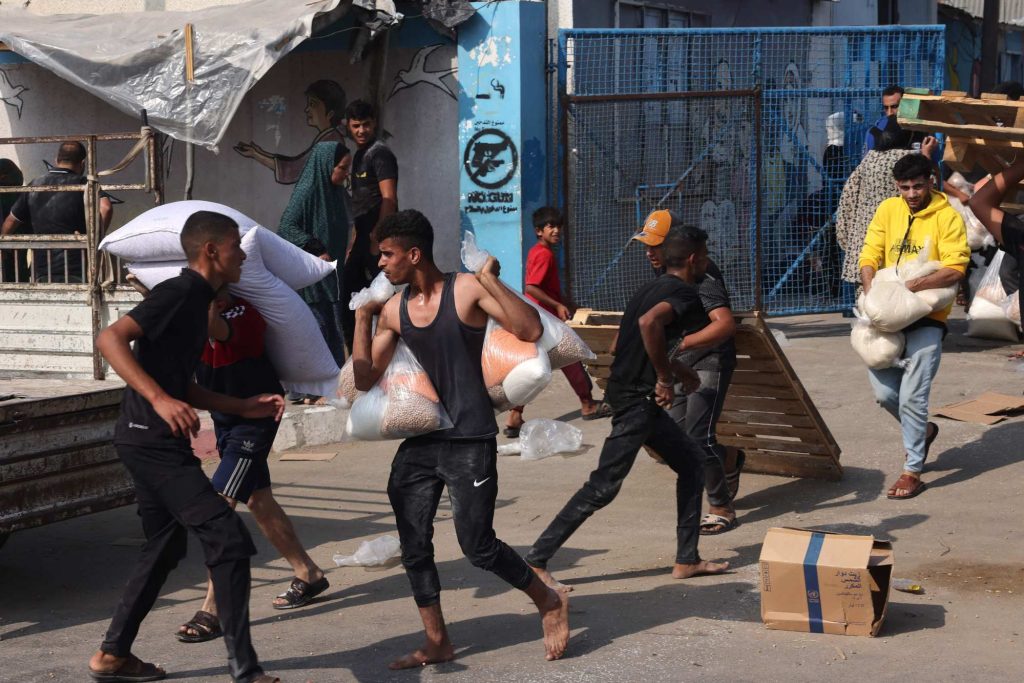The International Criminal Court’s chief prosecutor, Karim Khan, issued a stern warning on Sunday, highlighting the potential legal consequences of obstructing humanitarian aid from reaching Gaza. In a press conference held in Cairo, Khan emphasized the significance of this matter within the framework of international law.
Impeding Relief Supplies and the Geneva Conventions
Khan articulated that impeding the delivery of relief supplies, as stipulated by the Geneva Conventions, may constitute a crime falling under the jurisdiction of the International Criminal Court. This statement underscores the gravity of preventing much-needed aid from reaching its intended recipients.
Urgent Need at the Rafah Crossing
The urgency of the situation became apparent during Khan’s visit to Egypt’s Rafah crossing. He described the scene as trucks filled with essential humanitarian goods, desperately needed by the people of Gaza, were stranded and unable to enter the region.
A Call for Expedited Aid Delivery
Khan expressed his concern, stating, “I saw trucks full of goods, full of humanitarian assistance stuck where nobody needs them, stuck in Egypt, stuck at Rafah. These supplies must get to the civilians of Gaza without delay.”
Rafah: A Vital Entry Point
Rafah currently serves as the sole entry point for international aid to enter the Hamas-controlled Palestinian territory. The region has been under near-total siege and enduring relentless Israeli bombardment, making humanitarian aid a lifeline for its residents.
The Ongoing Humanitarian Crisis
The humanitarian crisis in Gaza has been exacerbated by a history of conflict. The siege was imposed by Israel in response to the actions of Hamas gunmen, leading to significant civilian casualties and the capture of hostages. In the wake of this conflict, thousands of lives, including many children, have been lost.
Also Read: Understanding the Makhachkala Airport Incident: External Interference
Recent Aid Deliveries
While some progress has been made in recent times, the flow of aid remains insufficient. On a positive note, 33 trucks loaded with water, food, and medicine entered the border crossing from Egypt recently, marking the largest aid convoy since the conflict began. Since the resumption of limited aid deliveries on October 21, a total of 117 trucks have entered Gaza. This pales in comparison to the 500 trucks carrying aid and essential goods that used to enter Gaza daily prior to the siege.
A Plea for Civilians
Karim Khan emphasized the need for immediate action, stating, “I want to underline clearly to Israel that there must be discernible efforts without further delay to make sure civilians in Gaza receive basic food, medicines, and assistance.”
The UN’s Concern
The United Nations has expressed deep concern about the situation, warning of a potential breakdown of public order due to incidents of looting at food aid centers operated by the UNRWA in Gaza. UN Secretary-General Antonio Guterres described the situation as growing increasingly desperate, with rising casualty numbers and dwindling supplies of food, water, medicine, and shelter.


Ongoing Investigations
Khan also shed light on the International Criminal Court’s ongoing investigations. These investigations cover a wide range of potential crimes committed within the territory of Palestine, regardless of the responsible party. This includes events in Gaza and the West Bank.
A Call for Compliance with International Law
Karim Khan made it clear that hostage-taking is a breach of the Geneva Conventions. He called for the immediate release of all hostages taken from Israel and their safe return to their families. Khan also stressed that both Israel and Hamas have legal obligations under the laws of conflict, emphasizing that these principles apply equally to both parties.
The Role of the International Criminal Court
Established in 2002, the International Criminal Court stands as the global independent tribunal responsible for investigating the world’s most severe crimes, including genocide, war crimes, and crimes against humanity. While the Palestinians signed up to the court’s founding Rome Statute in 2015, Israel, which is not a signatory to the ICC, has consistently refused to cooperate with the probe or recognize its jurisdiction.

